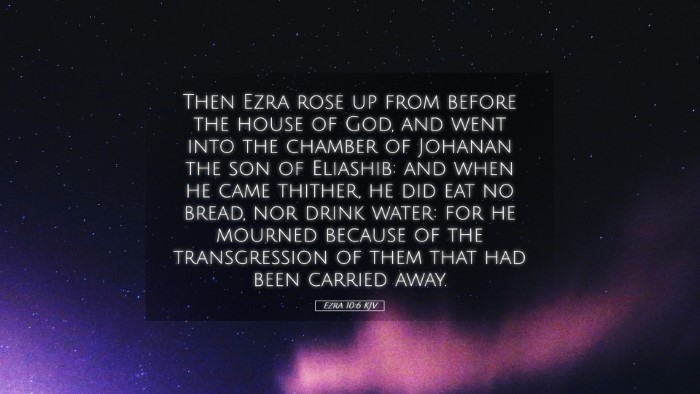Old Testament
Genesis Exodus Leviticus Numbers Deuteronomy Joshua Judges Ruth 1 Samuel 2 Samuel 1 Kings 2 Kings 1 Chronicles 2 Chronicles Ezra Nehemiah Esther Job Psalms Proverbs Ecclesiastes Song of Solomon Isaiah Jeremiah Lamentations Ezekiel Daniel Hosea Joel Amos Obadiah Jonah Micah Nahum Habakkuk Zephaniah Haggai Zechariah MalachiVerse
Ezra 10:1 Ezra 10:2 Ezra 10:3 Ezra 10:4 Ezra 10:5 Ezra 10:6 Ezra 10:7 Ezra 10:8 Ezra 10:9 Ezra 10:10 Ezra 10:11 Ezra 10:12 Ezra 10:13 Ezra 10:14 Ezra 10:15 Ezra 10:16 Ezra 10:17 Ezra 10:18 Ezra 10:19 Ezra 10:20 Ezra 10:21 Ezra 10:22 Ezra 10:23 Ezra 10:24 Ezra 10:25 Ezra 10:26 Ezra 10:27 Ezra 10:28 Ezra 10:29 Ezra 10:30 Ezra 10:31 Ezra 10:32 Ezra 10:33 Ezra 10:34 Ezra 10:35 Ezra 10:36 Ezra 10:37 Ezra 10:38 Ezra 10:39 Ezra 10:40 Ezra 10:41 Ezra 10:42 Ezra 10:43 Ezra 10:44

